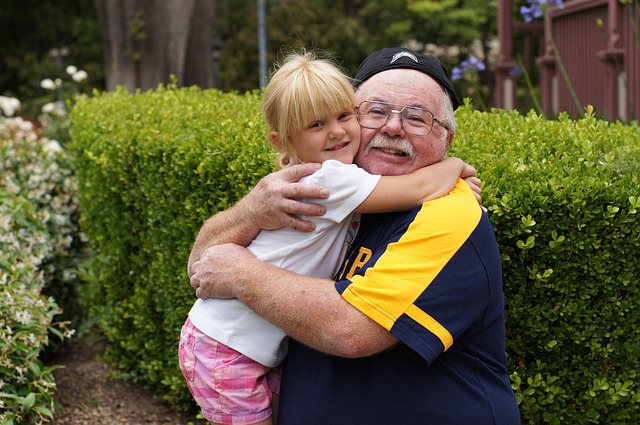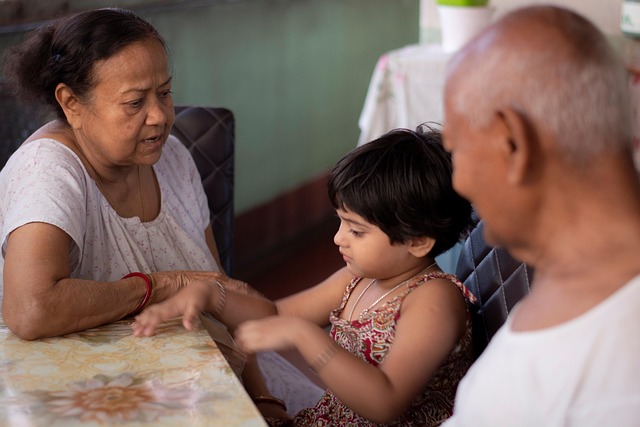In Oregon, grandparent rights allow legal access to grandchildren, requiring understanding of court procedures, best interests demonstrations, and evidence of a loving relationship. Key steps involve filing a petition, presenting evidence, and a judge's decision. Consulting an experienced family law attorney is vital for guidance through paperwork, hearings, settlements, and trials. After a decision, successful grandparents maintain visitation, while others reassess or explore alternative solutions. Navigating the complex Oregon court process demands sensitivity and understanding from all parties involved.
In Oregon, grandparent rights are a crucial aspect of family law, allowing grandparents to seek legal visitation and custody. This comprehensive guide delves into the intricate navigation of the Oregon court process for grandparent rights. From understanding the legal framework to preparing for court, we outline essential steps. Learn about grounds for filing, the step-by-step court process, the role of a family law attorney, common challenges, and post-court decisions. Equip yourself with knowledge to confidently navigate this important journey in Oregon.
- Understanding Grandparent Rights in Oregon: An Overview
- Grounds for Filing: When and Why to Seek Legal Action
- The Court Process Step-by-Step: From Petition to Decision
- Role of a Family Law Attorney: Expert Guidance You Need
- Common Challenges and How to Prepare for Court
- Post-Court Decisions: What Happens Next for Grandparents
Understanding Grandparent Rights in Oregon: An Overview

In Oregon, grandparent rights refer to the legal standing of grandparents to seek visitation and custody of their grandchildren. Understanding these rights is crucial when navigating the court process in Oregon. Grandparents who wish to establish or maintain a relationship with their grandchildren must be aware of their legal options and the steps required to exercise those rights.
The Oregon court system provides specific procedures for grandparent rights cases, ensuring that the best interests of both the child and the grandparents are considered. This involves filing a petition in court, presenting evidence of the grandparent-grandchild relationship, and demonstrating why visitation or custody is in the child’s best interest. Navigating this process requires legal expertise and a thorough understanding of Oregon’s family law, making it essential for grandparents to consult with an attorney experienced in handling such cases.
Grounds for Filing: When and Why to Seek Legal Action

When considering legal action for grandparent rights in Oregon, it’s crucial to understand the grounds that justify such a move. Grandparents may seek legal intervention when they believe their relationship with their grandchildren is being unfairly disrupted or denied. This could stem from various situations, including when a parent has suddenly cut off contact, moved away, or passed away, leaving the grandparent concerned for the child’s well-being and desire to maintain a significant role in their life.
Navigating the court process in Oregon requires a clear understanding of these grounds. Grandparents should be prepared with evidence demonstrating their loving and stable presence in the grandchild’s life, any historical or recent interactions, and the potential negative impact of severing this bond. Early action is often beneficial; establishing legal rights promptly can help ensure grandparent-grandchild connections are preserved and protected within Oregon’s family law framework.
The Court Process Step-by-Step: From Petition to Decision

Navigating the court process in Oregon for grandparent rights involves several steps, each crucial to ensuring a fair and just outcome. The journey begins with a petition—a formal written request submitted by the grandparent(s) to the court seeking specific rights regarding their grandchild. This document outlines the basis for the claim, including any existing relationship and reasons why granting access is in the child’s best interest. Once filed, the court assigns a case number and issues a summons, notifying the legal guardian or parents of the petition.
The next phase involves service of process, where the legal documents are officially delivered to the intended parties. After this, both sides have an opportunity to respond—the parents or legal guardians may file a response, either agreeing or disputing the grandparent’s request. If disputes arise, the court will schedule hearings at which both parties present their cases. These hearings provide an avenue for evidence presentation and witness testimonies. Ultimately, the judge reviews all submitted information, makes a decision, and issues an order granting or denying the requested grandparent rights, ensuring fairness throughout the navigating court process in Oregon.
Role of a Family Law Attorney: Expert Guidance You Need

When navigating the complex Oregon court process for grandparent rights, having a family law attorney by your side is invaluable. These legal professionals are experts in their field, providing crucial guidance and support throughout every step of the way. They possess an in-depth understanding of Oregon’s specific laws and regulations related to family matters, ensuring your rights and interests are protected.
A family law attorney can help you prepare and file the necessary paperwork, guide you through court hearings, and advocate for your position. Their expertise extends to negotiating settlements or representing you in trials, ensuring the best possible outcome. They’ll offer strategic advice, helping you understand your options, potential challenges, and the best course of action to achieve your goal of establishing or maintaining grandparent rights.
Common Challenges and How to Prepare for Court

Navigating the court process in Oregon for grandparent rights can be complex and emotionally challenging, often filled with common hurdles that families must overcome. One significant challenge is establishing a legitimate legal basis for intervention; courts require clear and compelling evidence demonstrating an urgent need for grandparent involvement in a child’s life. This may include situations where parents are unable or unwilling to provide care, ensuring the child’s well-being, or instances of abuse or neglect.
To prepare effectively for court, it’s crucial to gather comprehensive documentation supporting your case. This includes medical records, financial statements, and any other relevant evidence that highlights the benefits of grandparent involvement. Building a strong support system, both emotionally and logistically, is also essential. Engaging with legal professionals experienced in family law can provide guidance tailored to your unique circumstances, ensuring you’re well-prepared to present your case in Oregon’s courtrooms.
Post-Court Decisions: What Happens Next for Grandparents

After a grandparent rights case in Oregon reaches its judicial conclusion, the next step is crucial for all parties involved—navigating post-court decisions. If the court rules in favor of the grandparent, they may be granted legal visitation or custody rights, which can be a significant victory after navigating the complex Oregon court process. This new legal status comes with responsibilities and expectations outlined in the court’s order. Grandparents must now ensure they adhere to the agreed-upon visitation schedule, maintain open lines of communication with the parents, and respect any boundaries set by them.
For grandparents who have not been granted rights, there is still hope for future opportunities. They may choose to reassess their situation after some time, reapply, or explore alternative options like family therapy or mediation. Regardless of the outcome, it’s essential for all involved to remember that these cases are complex and often highly emotional, requiring sensitivity and understanding as they move forward.














